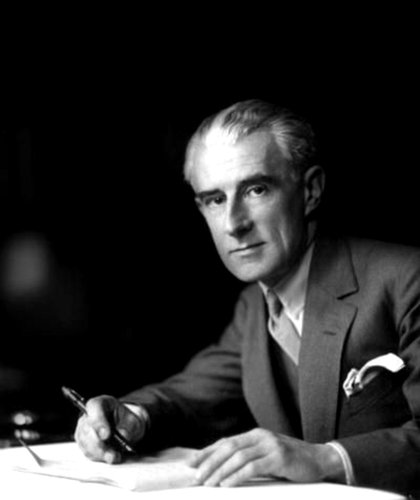
Maurice Ravel
Ciboure, 1875 - Paris, 1937.) French composer. Born of a Swiss father and a Basque mother, Ravel grew up in Paris where he studied harmony with Charles-René, a pupil of Délibes, and composition with Fauré. As a composer Ravel developed a very distinctive style. Though often labelled as an Impressionist - mentioned in one breath with Debussy - Ravel was much more than that. Romanticism, Neo-Classicism, Spanish music and Jazz all found a place in his oeuvre, though remaining subject to Ravel's personal style. This personal style was also reflected by his character which was exceedingly reticent. Avoiding too much company, he lived, withdrawn, in a small house in the woods outside Paris. He chose his friends as meticulously as his pupils, of which he only accepted a few during his whole career. Meticulous too were his scores, where quality always came before quantity. Ravel's way of working led Stravinsky to call him the "Swiss watchmaker." As an orchestrator he remains unsurpassed. As a contrast to - or should we say in accordance with - his self-chosen "solitude" stands Ravel's love for animals, nature in general, children and fairy tales. Though this love is well reflected in his music, Ravel was convinced that music was not the best means to convey emotions, even though emotions are present all the time. His critics once accused him of lacking emotion, to which he replied in his defence that he was Basque and his emotions were those of a Basque.